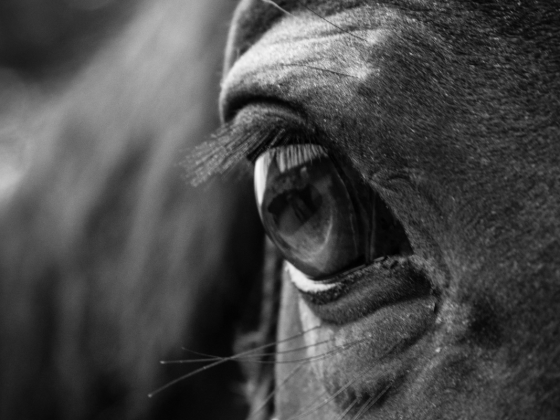Why do racehorses sweat?
Racehorses sweat to regulate and lower their body temperature. A horse moderates its temperature when breathing and through the skin. In situations where this is not enough to cool a horse’s temperature then it will release heat through sweating.
Is it normal for a racehorse to sweat?
Sweating will occur during exercise, this is normal for a horse and is the sign of a healthy horse. A horse may also sweat in warm, humid temperatures, when the horse is in a stressful situation or possibly when it is in pain.
Normally a horse cools itself through breathing or releasing the heat through its skin. When these measures are insufficient it will start to sweat. The sweat evaporates on the skin of the horse and this cools the horse down.
This may become an issue on humid days where the air is too dry or there is not enough wind to evaporate the sweat.
Will sweating affect a racehorse's performance?
Horse sweat is a mix of water, soluble salts known as electrolytes and a protein component called latherin. The electrolytes, Sodium, Calcium, Potassium, Magnesium and Chloride are important in aiding muscle function in a horse. A deficiency can cause a horse to become dehydrated and impair the performance of a racehorse.
Initially when horses sweat it normally manifests itself in areas under and around the saddle, on areas of the neck in contact with the reins and between the horse’s hind legs. As this is the natural cooling function of a racehorse it is not of great concern, particularly if it is a hot and humid day. Nor does it adversely impact the horse’s performance.
Horse skin is waterproof and latherin reduces the surface tension of a horse’s skin, allowing the fluids to escape and then evaporate. Latherin has detergent-like properties and is what causes the white foamy sweat when a racehorse sweats more profusely.
Be wary of a Racehorse sweating profusely
So while sweating is a natural function and cooling mechanism in a healthy racehorse you should be wary when you see white foamy sweat as it is a sign of a horse losing significant water and essential electrolytes.
This will be circumstance dependent, you would expect to see a horse sweating after exercise or post-race. On very hot and humid days, it would be the norm for a horse to regulate its body temperature.
Pre-race or on a cool day I’d be more concerned, particularly if the horse is showing signs of restlessness or tension pre-race.
Some horses are known to sweat more profusely than others, it’s worth noting those that do and whose race performance isn’t affected. If it’s out of character for a particular racehorse and it’s not a humid day then again I’d be more pessimistic about the horses chance of performing to its best in an upcoming race.










